Covid-19 can spread from an infected person to a healthy individual in close proximity (within 6 feet). If a coronavirus patient coughs or sneezes, their respiratory droplets are dispersed in the air and come into contact with nearby surfaces. Anyone who touches these surfaces can contract the disease.
Since the world is still coming to terms with the nature and impact of the pandemic, there’s a lot of news out there about Covid-19. However, you need to be careful as to the source of your information as some people, many unwittingly, are contributing to the spread of misinformation about the crisis.
People have invented different home remedies, which haven’t been approved by any authorized health organisation. Others seem to be passing on unverified news to families and friends via social media. This blog will share authentic and verified facts about coronavirus and debunk all sorts of myths out there.
Without further ado, let’s get to the facts.
Common Myths and Facts About Coronavirus
The World Health Organisation (WHO) has sorted out facts from misconceptions and rumours. Here’s a list of facts about coronavirus.
- The new coronavirus can be transmitted in all areas – even in hot and humid climates
- Snow and cold weather can’t kill coronavirus germs
- Having a hot bath does not prevent you from contracting coronavirus
- Coronavirus can’t be transmitted through mosquito bites
- Hand dryers are not effective in killing the coronavirus
- Ultraviolet lamps should not be used to sterilize hands
- Thermal scanners can detect a fever. It can’t detect people who are infected but haven’t developed a fever yet
- Spraying your body with alcohol can’t kill coronavirus germs that have entered your body
- Vaccines against pneumonia don’t provide protection against coronavirus
- Rinsing your nose with saline water doesn’t protect you from coronavirus
- Garlic has antimicrobial properties, but there is no evidence that it provides protection from coronavirus
- People of all ages can be affected by COVID-19
- Antibiotics only work against bacteria and the new coronavirus is a virus
- As of now, there are no specific medicines required to treat the coronavirus
We will discuss these myths vs. facts about coronavirus in detail.
Myth: Coronavirus can’t survive hot weather
Fact: Coronavirus can easily spread in countries experiencing warm weather
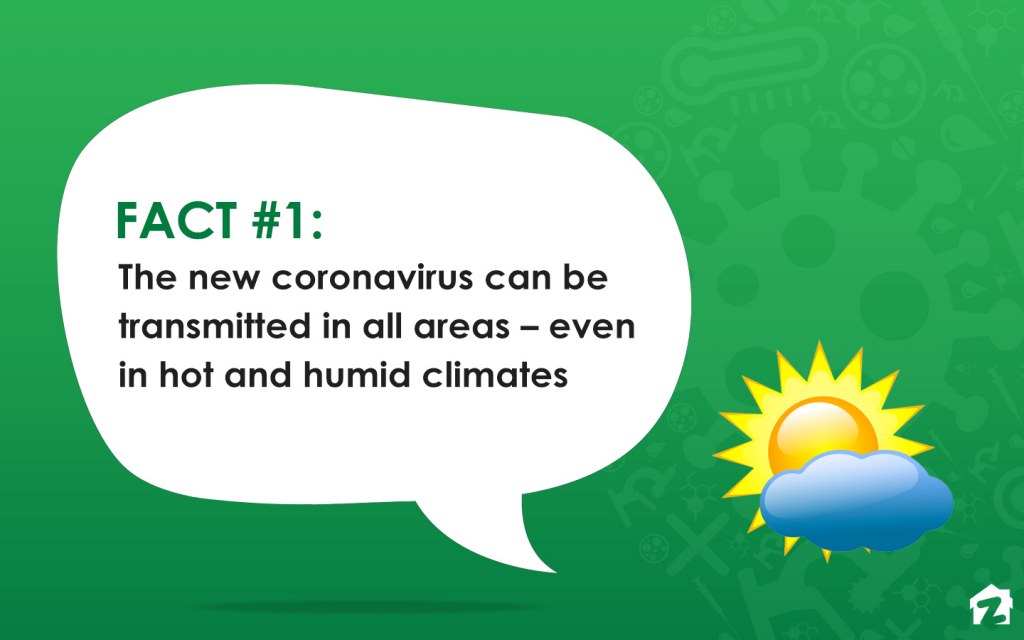
A common myth about coronavirus circulating these days is that the virus can’t survive in areas where the climate is hot. As per WHO’s factsheet about coronavirus, there is no evidence so far. COVID-19 can be transmitted to all areas, including countries where the weather is hot, dry or humid.
Avoid traveling to countries affected by COVID-19. Also, make sure that you are following the WHO set protocols, especially when you enter your home. The best way to protect yourself from the virus is to frequently wash your hands with soap and water for 20 seconds and avoid touching your face.
Myth: Cold weather can kill COVID-19 germs
Fact: Snow conditions and cold weather can’t kill coronavirus germs
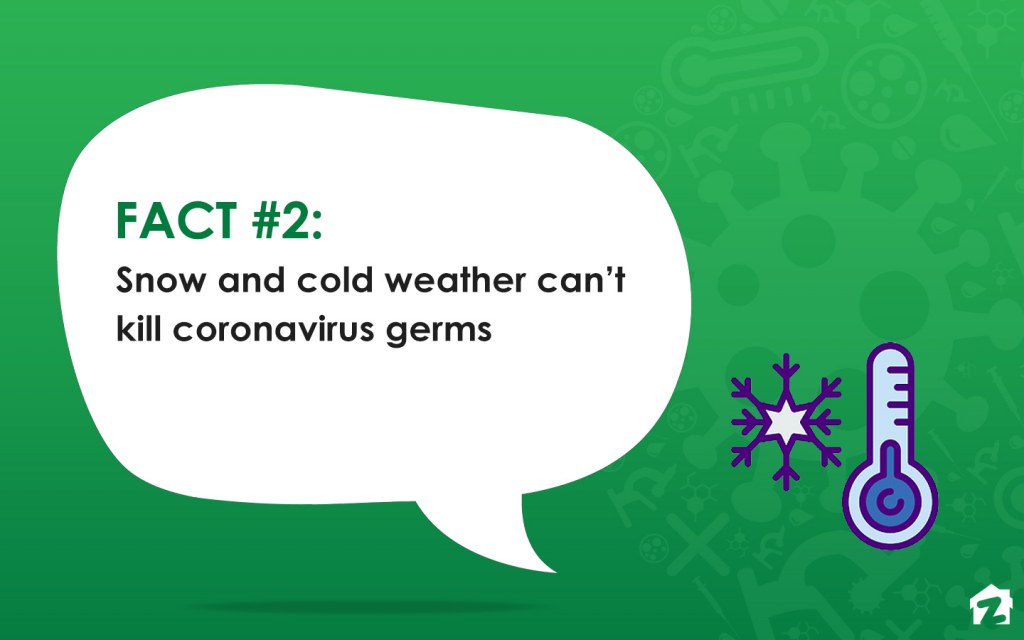
There are numerous coronavirus-related falsehoods circulating on the social media these days. One of them is that the novel coronavirus can’t survive in cold weather. Irrespective of the weather outside, your body temperature remains the same – around 36.5 – 37 degree centigrade. The only way you can stay protected is by using alcohol-based hand sanitiser that you can easily make at home or by washing hands frequently.
Myth: Taking a hot shower can kill the coronavirus germs
Fact: Having a hot bath does not prevent you from contracting coronavirus
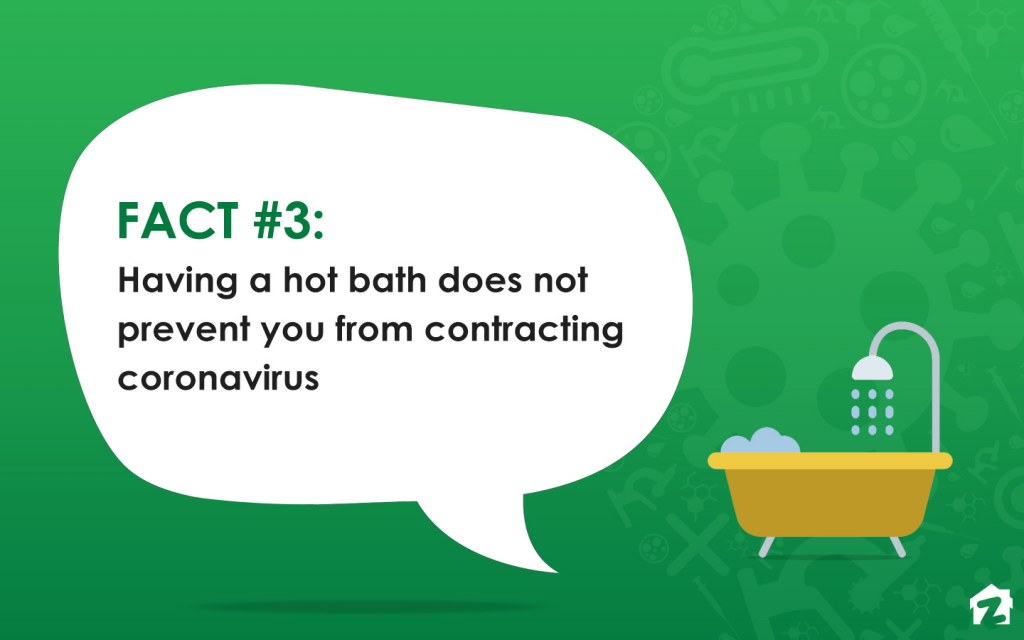
Taking a hot bath can help relax your muscles, but it can’t prevent you from getting coronavirus. The virus that might have entered your throat or lungs can’t be eliminated with a hot bath.
Your body temperature remains the same, irrespective of the temperature you maintain in your bathtub. WHO advises that the only way to prevent being infected from coronavirus is through regular washing of hands so that you don’t touch your eyes, mouth and nose with an infected hand.
Myth: Coronavirus is transmitted through mosquito-bites
Fact: Coronavirus can’t be transmitted through mosquito bites
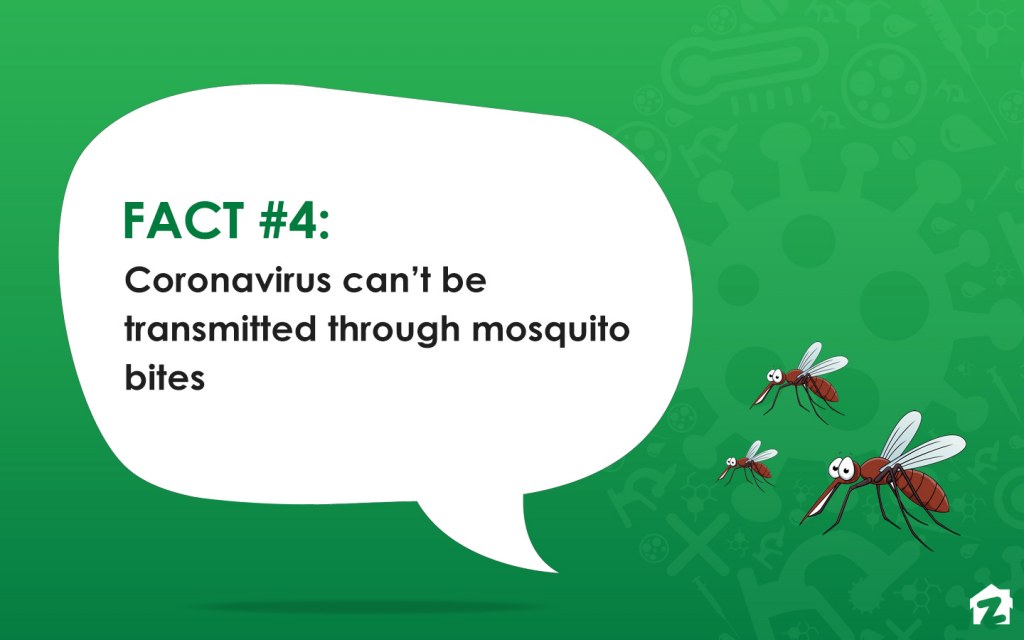
Coronavirus can’t spread through mosquito-bites. It is not dengue fever we are talking about here. It is a novel virus that can be transmitted through respiratory droplets of an infected person.
That is why practicing social distancing is so important. Don’t get agitated if a mosquito bites you. You can develop malaria or dengue, but not coronavirus. If you are worried about dengue, then check out our detailed blog on how you can make your home dengue-free.
Myth: You can kill coronavirus germs by placing your hands under a hand dryer
Fact: Hand dryers are not effective in killing the coronavirus
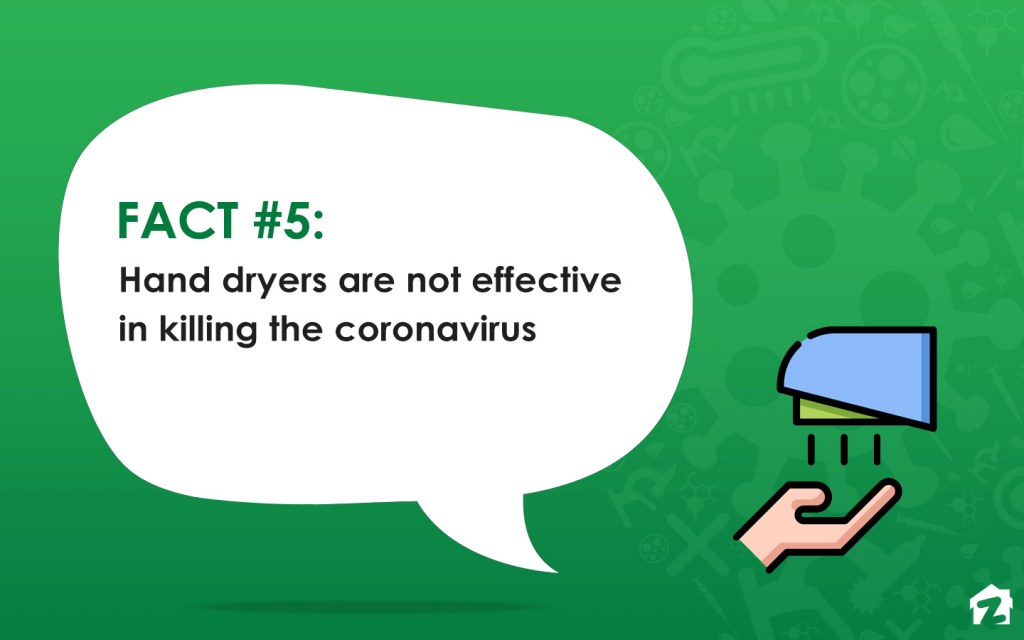
The only way you can protect yourself from coronavirus is by frequently washing hands. There is no evidence that placing your hands under a hand dryer can kill coronavirus. Wash your hands for 20 seconds as directed by the Centre for Control Disease (CDC) and either dry them using paper towels or through a warm air dryer.
Myth: Ultraviolet lamps are best to sterilize hands
Fact: Ultraviolet lamps should not be used to sterilize hands
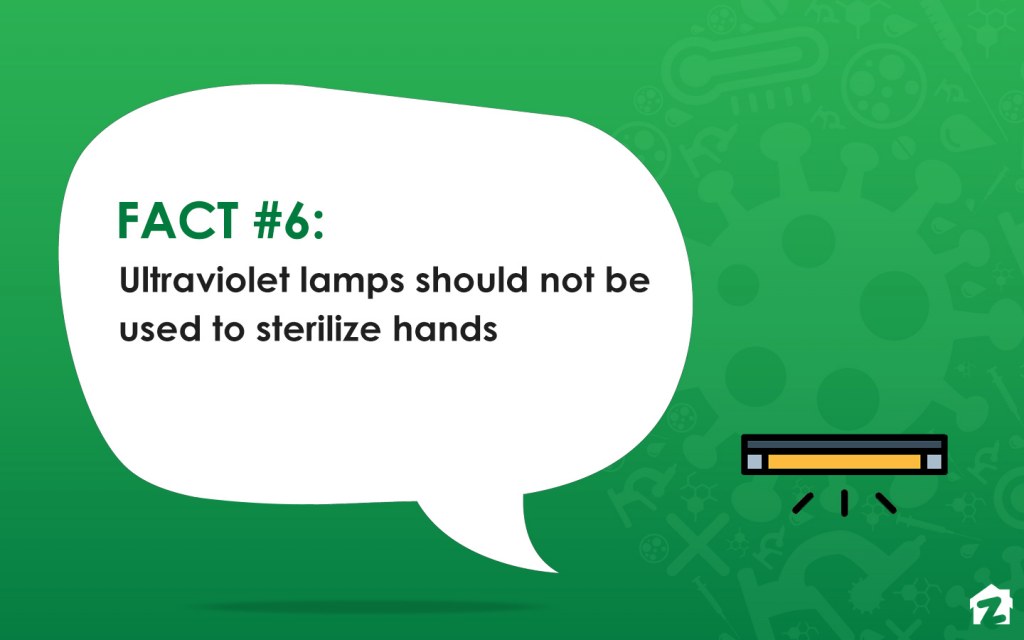
You can’t sterilize hands using ultraviolet radiation. Besides doing any good, it can cause skin irritation and the ultraviolet rays can be harmful.
Myth: Thermal scanners can detect coronavirus
Fact: Thermal scanners can detect a fever. It can’t detect people who are infected but haven’t developed a fever yet
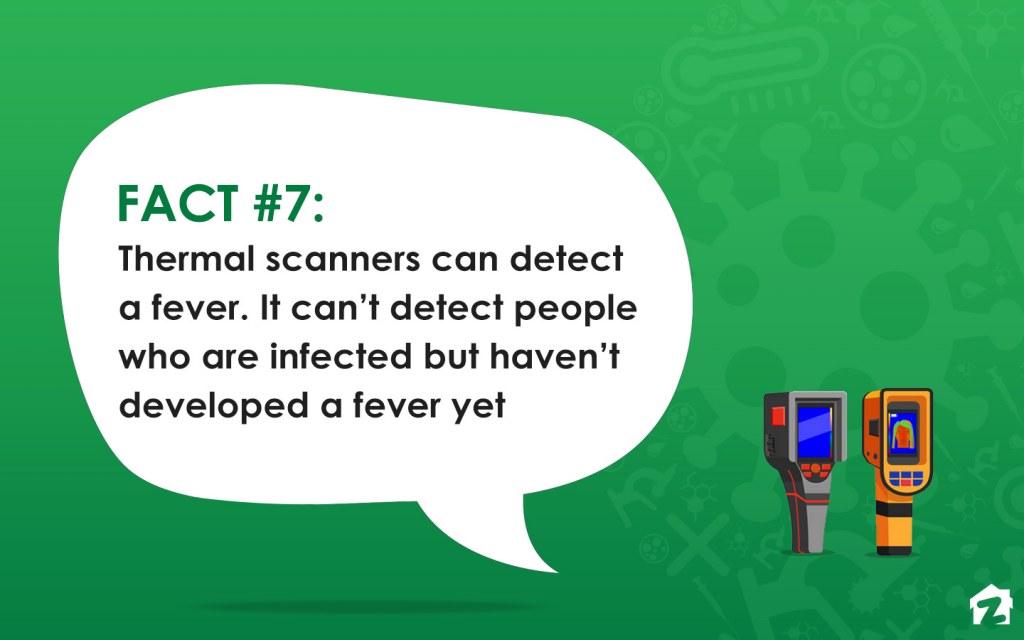
This is perhaps one of the most common misconceptions about coronavirus. People believe that thermal scanners can do a coronavirus test on the spot, which is totally wrong. Thermal scanners only help to determine the temperature of your body. It can’t tell whether you have coronavirus or not. This is because it takes around 2-10 days for infected people to develop a fever and other symptoms.
Myth: Spraying alcohol on the body can kill coronavirus germs
Fact: Spraying your body with alcohol can’t kill coronavirus germs that have entered your body
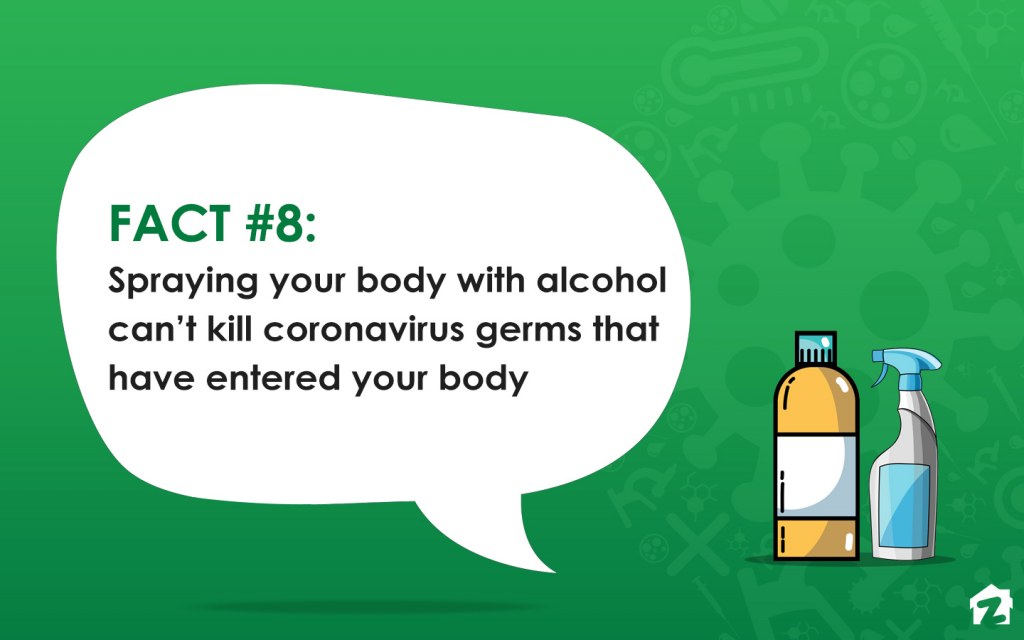
Another COVID-19 fact is that no matter how much alcohol you spray on your body, the virus if it has entered your body can’t be eliminated. Alcohol, chlorine and bleach can be used to disinfect surfaces and in turn help prevent the spread of coronavirus. But they are of no use once the coronavirus has entered your body.
Myth: Taking medications used against pneumonia can provide protection against coronavirus
Fact: Vaccines against pneumonia don’t provide protection against coronavirus
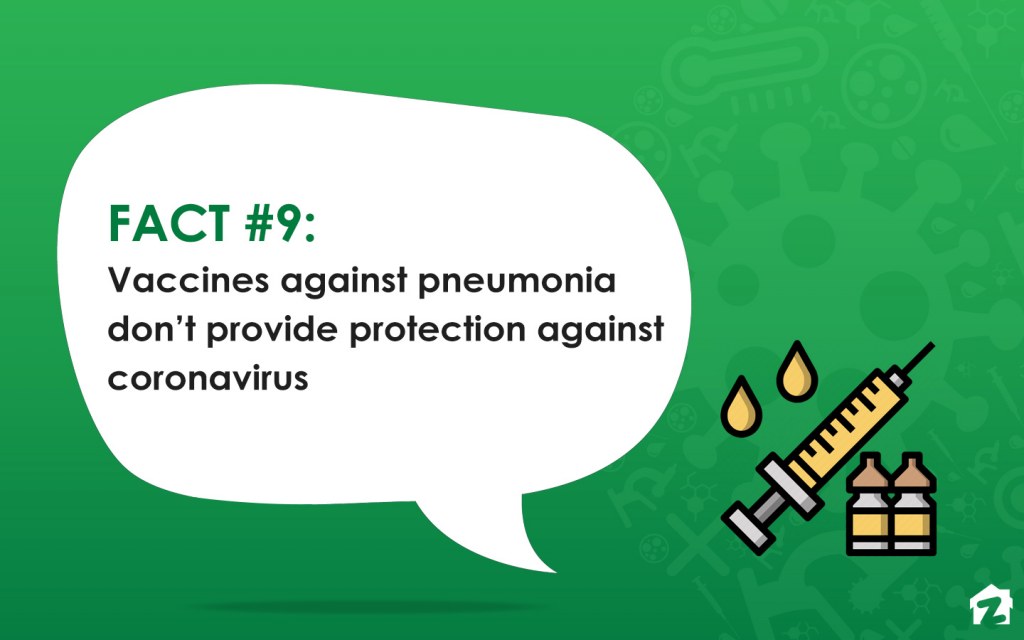
There is no vaccine for coronavirus yet. According to WHO, vaccines against pneumonia, such as pneumococcal vaccine and Haemophilus influenza type B (Hib) vaccine, do not provide protection against the new coronavirus. It is a new virus and researches are underway to develop a new vaccine for COVID-2019.
Myth: Putting saline water in your nose can provide protection from coronavirus
Fact: Rinsing your nose with saline water doesn’t protect you from coronavirus
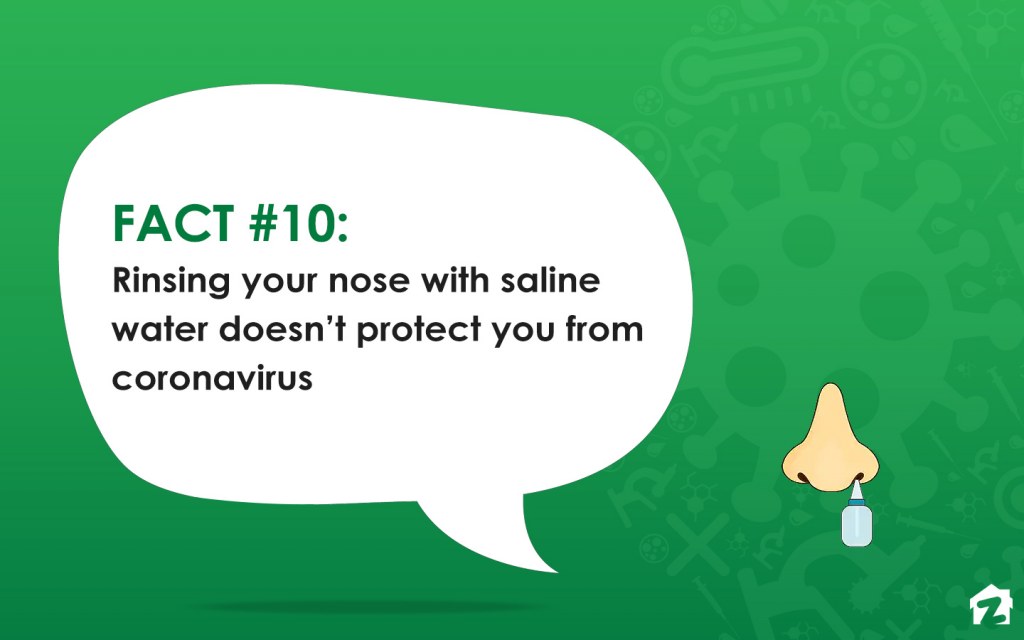
There is no evidence that rinsing your nose with saline water can provide protection from the new coronavirus. However, there is some evidence that rinsing your nose with saline water can help fight some allergies and common cold.
Myth: Eating raw garlic can kill COVID-19 germs
Fact: Garlic has antimicrobial properties, but there is no evidence that it provides protection from coronavirus
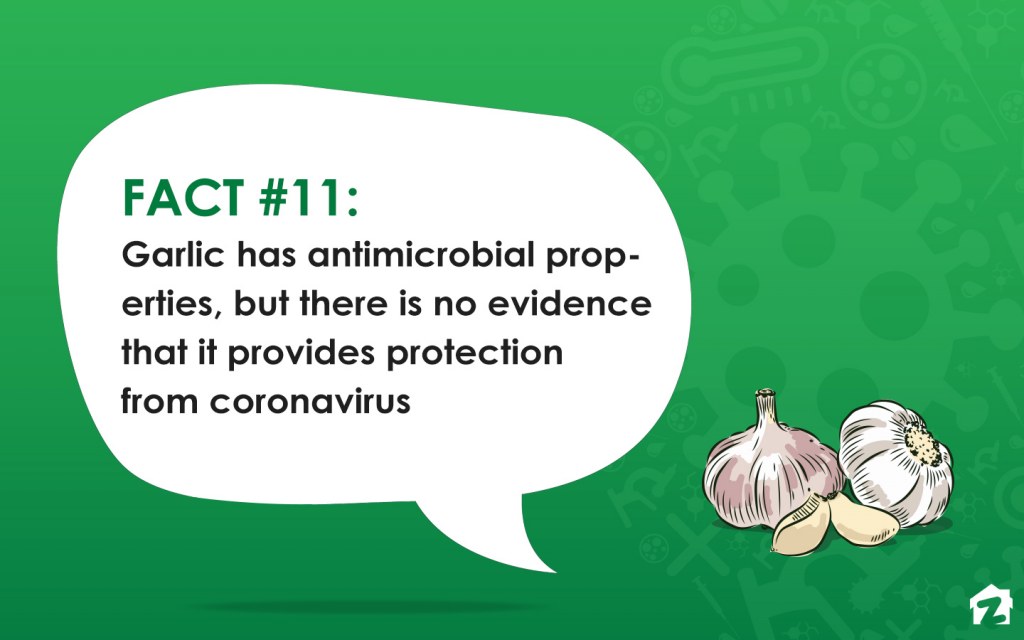
Eating garlic has immense health benefits, but there is no evidence that it will help fight the coronavirus germs. It has some antimicrobial properties, but eating garlic does not protect you from COVID-19.
Myth: Old people usually get the coronavirus disease and young people are safe
Fact: People of all ages can be affected by COVID-19
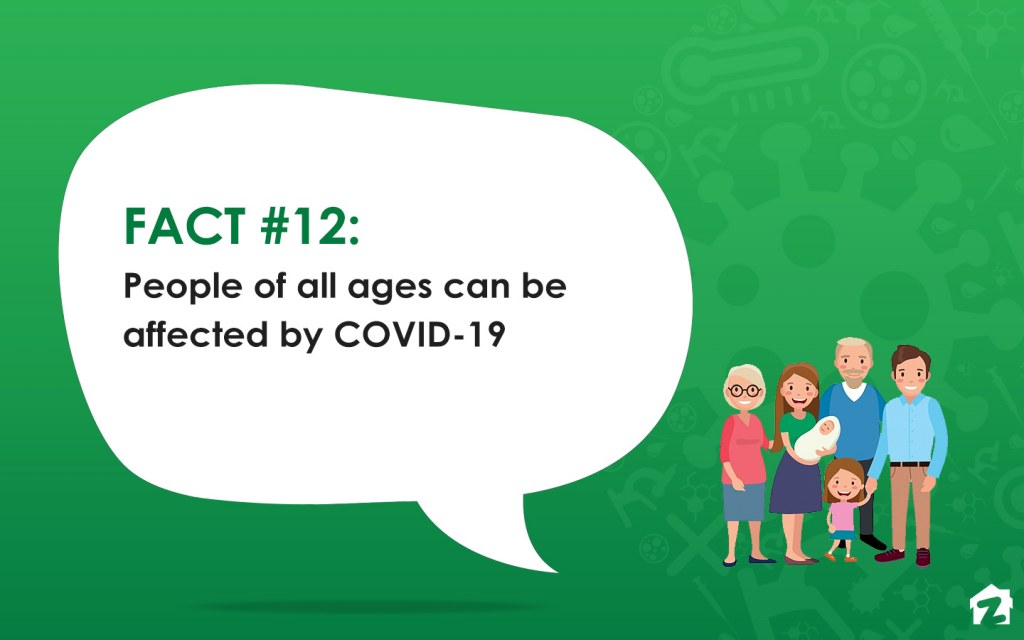
Although older people and those with pre-existing medical conditions are more vulnerable of contracting coronavirus, there is no evidence that young people are safe. Those with weak immune systems are more susceptible to contracting Covid-19 – whether old or young. It is best to protect yourself from coronavirus through social distancing and by following good hygiene practices.
Myth: Popping antibiotic pills can cure the novel coronavirus
Fact: Antibiotics only work against bacteria and the new coronavirus is a virus
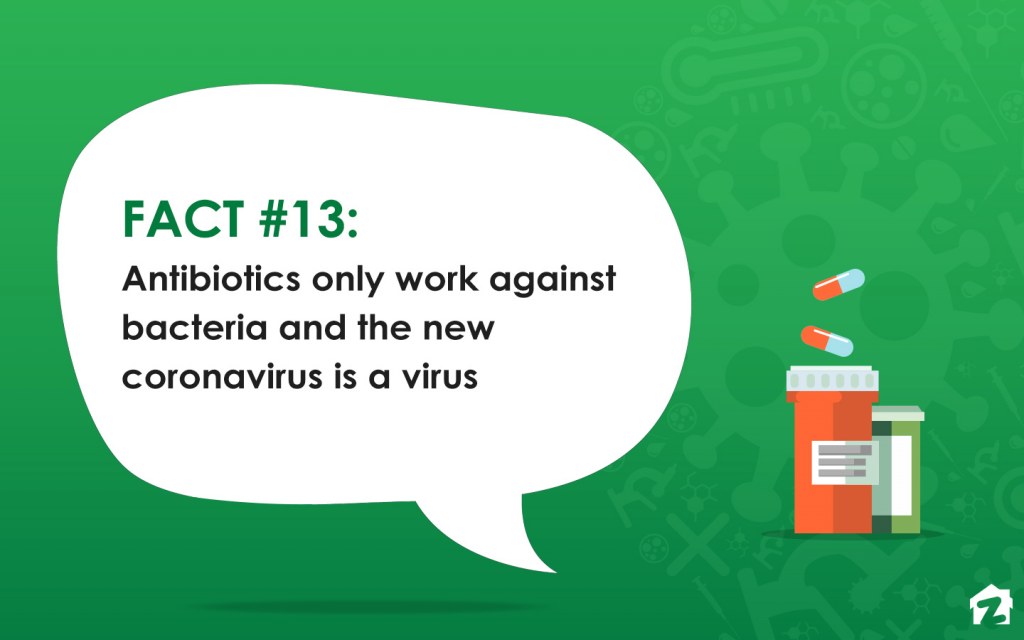
It is quite likely that if you are hospitalized, the doctors might give you antibiotics to cure any bacterial infection. However, antibiotics can not cure 2019-nCOV as it is a virus and not a bacteria. Antibiotics should not be considered a treatment for coronavirus.
Myth: Anti-malaria drug, Chloroquine can cure coronavirus
Fact: As of now, there are no specific medicines required to treat the coronavirus
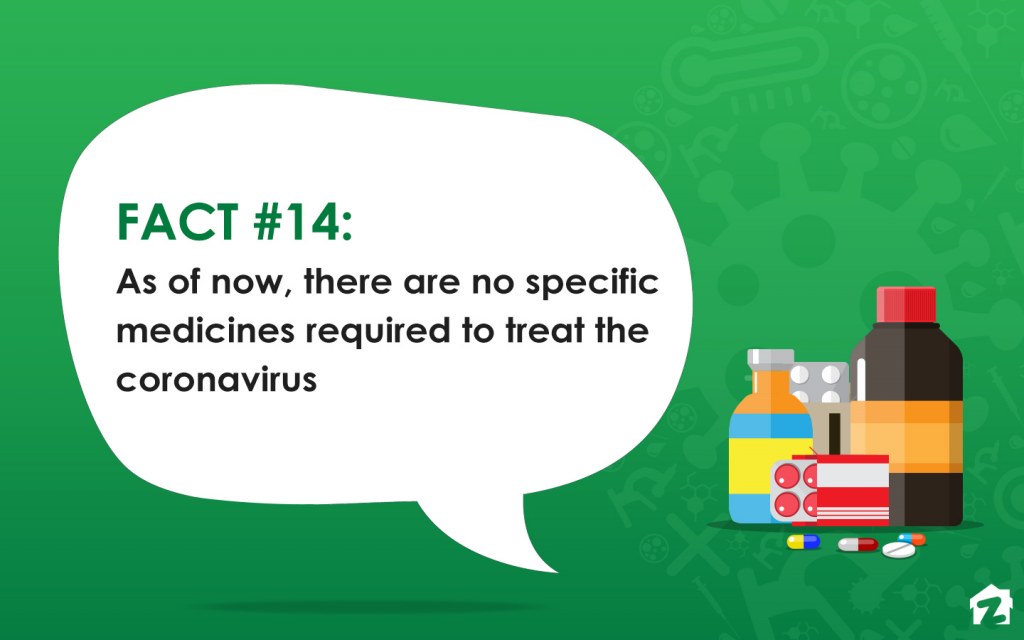
No medicine has been made to treat COVID-19. There are false rumours regarding coronavirus that a viable vaccine has cured people. However, no specific medicine has been developed to cure the respiratory disease. Research is underway and can only be tested through clinical trials.
So, these were some WHO verified coronavirus facts that we should rely on. You can also check out the precautions and symptoms shared by WHO as a guideline on how to stay safe from the coronavirus outbreak. Check out our detailed guide on how you can make a DIY portable handwashing station for your community and promote safe hygiene practices.
Stay safe, everyone! Don’t forget to write to us at blog@zameen.com and we will surely get back to you. Make sure to visit Zameen Blog, the best lifestyle blog in Pakistan. Subscribe to the Zameen Newsletter appearing on the right hand side of the page.



